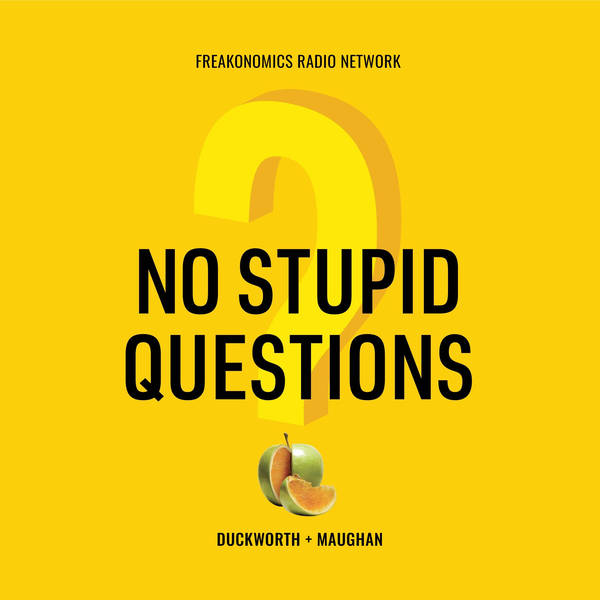
208. Can A.I. Companions Replace Human Connection?
What happens when machines become funnier, kinder, and more empathetic than humans? Do robot therapists save lives? And should Angela credit her virtual assistant as a co-author of her book?
SOURCES:Robert Cialdini, professor emeritus of psychology at Arizona State University.Reid Hoffman, co-founder and executive chairman of LinkedIn; co-founder and board member of Inflection AI.Kazuo Ishiguro, novelist and screenwriter.Ethan Mollick, professor of management and co-director of the Generative A.I. Lab at the Wharton School of the University of Pennsylvania.Ann Patchett, author.Kevin Roose, technology columnist for The New York Times and co-host of the podcast Hard Fork.Niko Tinbergen, 20th-century Dutch biologist and ornithologist.Lyle Ungar, professor of computer and information science at the University of Pennsylvania.E. B. White, 20th-century American author.
RESOURCES:Co-Intelligence: Living and Working with AI, by Ethan Mollick (2024)."Meet My A.I. Friends," by Kevin Roose (The New York Times, 2024)."Loneliness and Suicide Mitigation for Students Using GPT3-Enabled Chatbots," by Bethanie Maples, Merve Cerit, Aditya Vishwanath, and Roy Pea (NPJ Mental Health Research, 2024)."AI Can Help People Feel Heard, but an AI Label Diminishes This Impact," by Yidan Yin, Nan Jia, and Cheryl J. Wakslak (PNAS, 2024)."Romantic AI Chatbots Don’t Have Your Privacy at Heart," by Jen Caltrider, Misha Rykov and Zoë MacDonald (Mozilla Foundation, 2024).Klara and the Sun, by Kazuo Ishiguro (2021).The Study Of Instinct, by Niko Tinbergen (1951).Pi.
EXTRAS:"Are Our Tools Becoming Part of Us?" by People I (Mostly) Admire (2024)."Is GPS Changing Your Brain?" by No Stupid Questions (2023)."How to Think About A.I.," series by Freakonomics Radio (2023)."Would You Rather See a Computer or a Doctor?" by Freakonomics, M.D. (2022).
